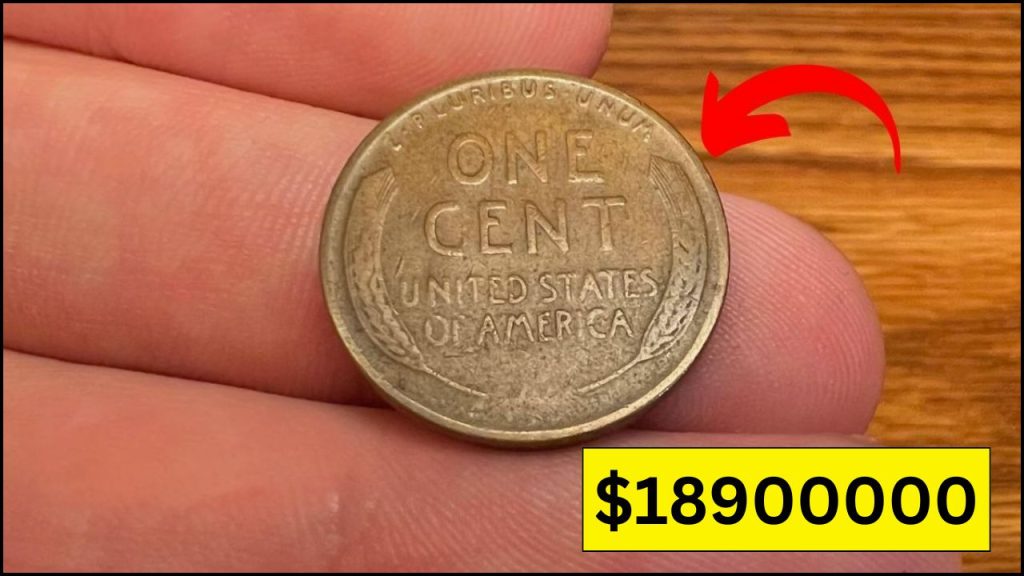Imagine finding a small coin in your pocket that could change your life. Sounds like a dream, right? But this dream could very well be a reality. A rare Lincoln Wheat Penny, valued at an incredible $18.9 million, is still believed to be floating around in everyday circulation!
This fascinating story has captured the hearts of coin collectors, history buffs, and lucky hunters everywhere. Let’s dive into the details behind this millionaire-making penny and how you might stumble upon it.
What is the Lincoln Wheat Penny?
The Lincoln Wheat Penny holds a special place in American history. Introduced in 1909, this coin was the first U.S. currency to feature a real person — none other than President Abraham Lincoln.
The reverse side (back) of the coin proudly displays two stalks of wheat, symbolizing prosperity and abundance, which led to its nickname, the Wheat Penny.
Here’s a quick look at its basic details:
| Feature | Details |
|---|---|
| First Issued | 1909 |
| Obverse (Front) | Portrait of Abraham Lincoln |
| Reverse (Back) | Two wheat stalks |
| Minting Ended | 1958 |
| Metal Composition | Mostly Copper (except special years) |
Millions of these pennies were made, but only a few have become extremely valuable due to rare mistakes and unique metal compositions.
The Lincoln Wheat Penny Valued at $9.4 Million, Still in Circulation?
The Lincoln Wheat Penny Valued at $258K, Still in Circulation?
The Lincoln Wheat Penny Valued at $88 Million: Still Circulating?
What Makes One Penny Worth $18.9 Million?
Among the many Lincoln Wheat Pennies, one penny stands out and commands a jaw-dropping value of $18.9 million. But why?
The secret lies in its material.
In 1943, during World War II, copper was urgently needed for military supplies. So, the U.S. Mint decided to make pennies out of zinc-coated steel instead of copper. However, by pure accident, a few bronze blanks (the traditional material) were left in the minting machines.
As a result, a handful of 1943 Lincoln Pennies made of bronze were accidentally created. These are now among the rarest and most valuable coins ever discovered.
Here’s a breakdown:
| Year | Material | Notes |
|---|---|---|
| 1943 | Steel | Standard wartime production |
| 1943 | Bronze | Rare error — only a few exist |
One such bronze 1943 Lincoln Penny recently sold for a breathtaking $18.9 million, making it one of the most expensive coins ever sold.
Why Is It Still in Circulation?
You might be wondering: If it’s so rare, how could it still be out there?
Here’s the answer: Not every rare coin has been discovered. Many coins end up lost in drawers, piggy banks, old jars, or passed around in regular transactions. Since most people don’t closely inspect pennies, a few of these rare treasures might still be lurking in everyday circulation.
That’s why treasure hunters and collectors are carefully checking their change these days. With one lucky find, you could go from a few cents to a multi-million-dollar payday!
How to Spot a Rare Lincoln Wheat Penny
If you’re ready to go treasure hunting, here’s what you need to know.
1. Check the Date
Look at the date on the penny. A 1943 penny made from bronze (copper color) is a strong candidate.
2. Check the Color
- Steel Pennies (1943 standard): Silver-gray color
- Bronze Penny (Rare): Reddish or brownish copper color
3. Use a Magnet
Here’s a simple trick:
- Steel pennies stick to a magnet.
- Bronze pennies do not stick.
If your 1943 penny doesn’t stick to a magnet, you might have a treasure on your hands!
4. Professional Authentication
If you think you have found something special, get it authenticated by a reputable coin dealer or grading service like PCGS or NGC. They can officially verify its authenticity and help you estimate its value.
Other Valuable Lincoln Wheat Pennies to Watch For
Even if you don’t find the $18.9 million penny, many other Wheat Pennies are worth hundreds or thousands of dollars!
| Year | Potential Value Range | Notes |
|---|---|---|
| 1909-S VDB | $700 – $60,000 | First-year penny with designer’s initials |
| 1914-D | $300 – $5,500 | Low mintage year |
| 1922 (No D) | $500 – $30,000 | Rare due to missing mint mark |
| 1931-S | $75 – $1,000 | Low production in San Francisco |
Always check for:
- Unusual mint marks
- Errors (like doubled dies)
- Unusual colors or surfaces
Why Are Rare Coins So Valuable?
Rare coins are valuable for a combination of reasons:
- Scarcity: Fewer coins mean higher demand.
- Historical Importance: Coins tied to major events (like WWII) are highly prized.
- Condition: A coin in better shape is always worth more.
- Mystique: The idea that a “common” coin could be worth millions fascinates people.
Collectors love rare coins because they’re tangible pieces of history — and because sometimes, they’re literal treasures!
Final Thoughts: Could You Be Holding a Fortune?
Imagine walking around with a tiny penny in your pocket, not realizing it could buy you a mansion, a fleet of cars, or fund your dream life. That’s the magical story behind the Lincoln Wheat Penny worth $18.9 million.
So next time you get change back from a store, take a closer look. Check old jars, coin collections, or even your grandparents’ piggy banks. You never know — you might just uncover the next hidden fortune.
Stay curious, stay observant, and keep your eyes on your coins. Your millionaire moment might be just one penny away!
